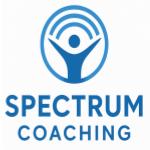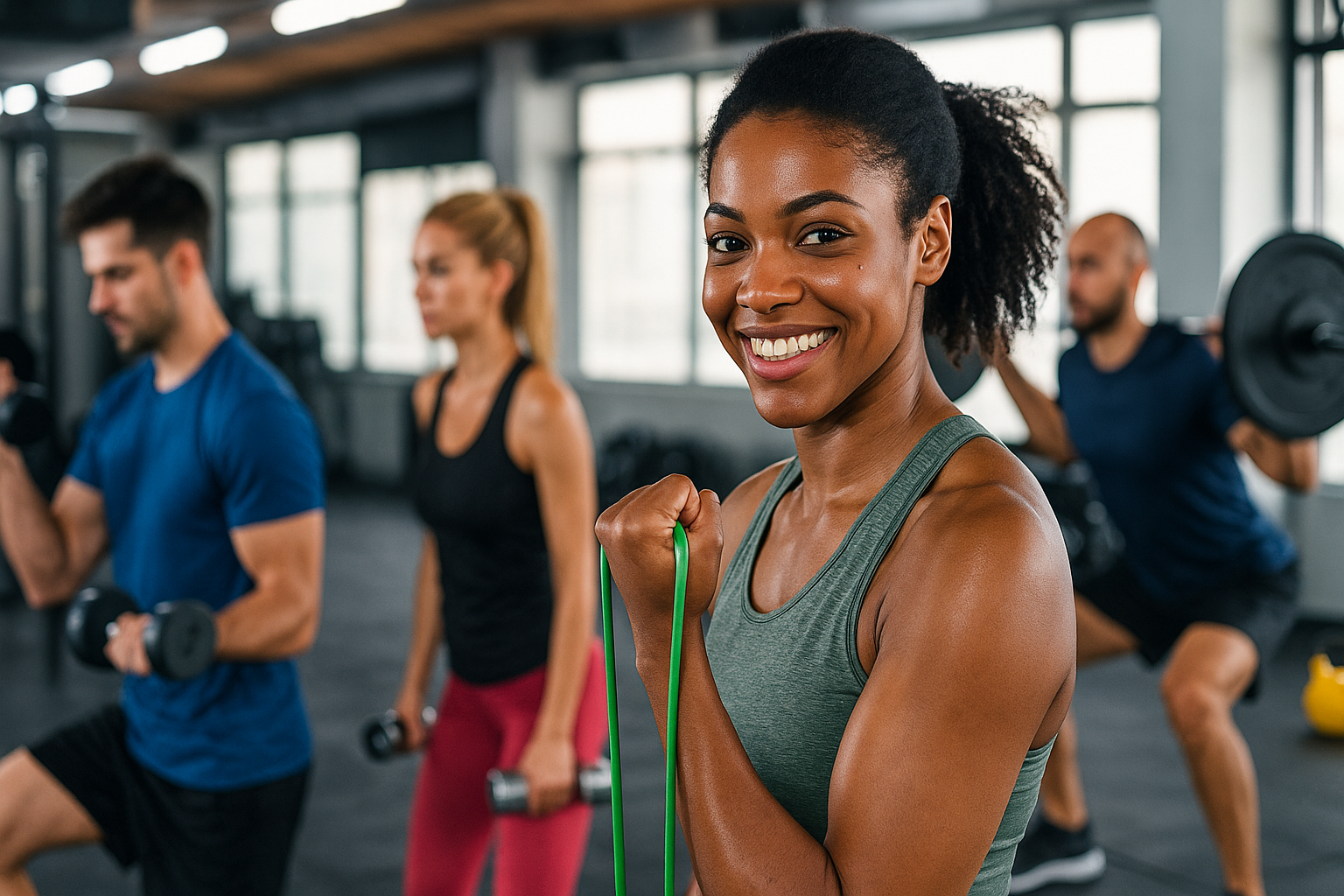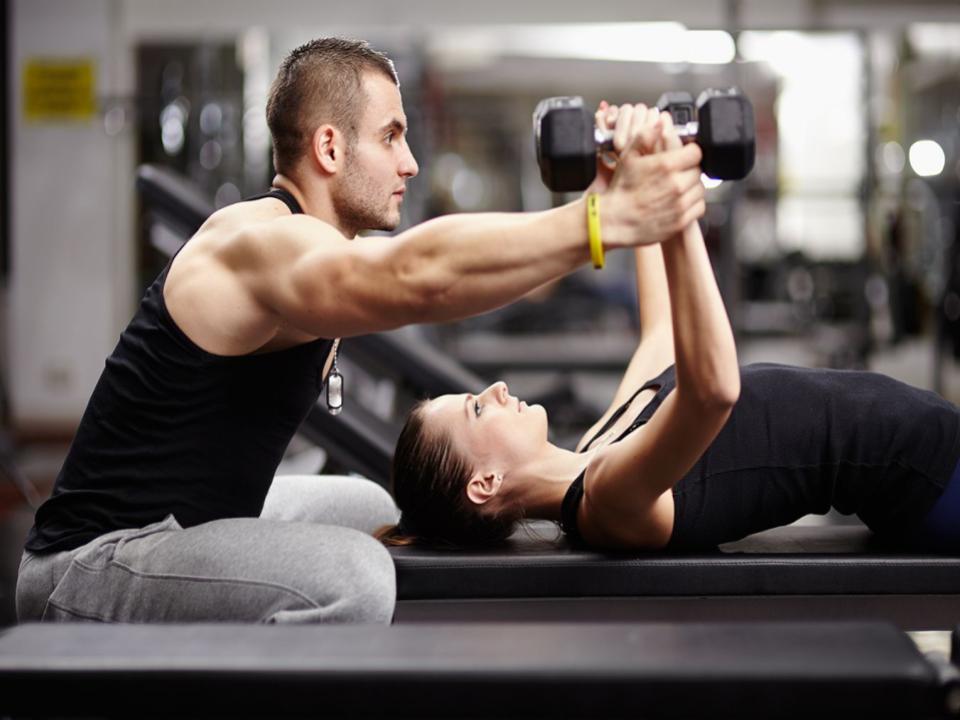Fitness built for neurodivergent minds—custom workouts, focus tools, and accountability that last.
Empowering Neurodiverse Lives with Fitness and Yoga Strategies in 2025
Empowering neurodiverse individuals through fitness and yoga is transformative. Tailored strategies help improve focus, emotional regulation, and physical well-being. In 2025, these practices integrate adaptive techniques and inclusive approaches to support neurodiverse communities. Let’s explore how fitness and yoga can empower neurodiverse lives.
The Role of Fitness in Enhancing Focus and Confidence
Fitness enhances focus and builds confidence in neurodiverse individuals. Regular exercise offers a natural way to boost mental clarity and self-esteem.
Physical activity increases dopamine levels. This neurotransmitter improves motivation, mood, and attention, especially for those with ADHD. Consistent workouts help regulate these brain functions naturally.
Tailored fitness programs address individual needs. Coaches create routines that align with sensory preferences, avoiding overwhelming stimuli. Personalized plans ensure comfort and engagement.
Strength training develops more than muscles. It fosters a sense of accomplishment with each achieved goal. This builds self-confidence and encourages perseverance in other areas.
Cardiovascular activities support brain health. Exercises like running or cycling enhance memory and decision-making skills. For those on the autism spectrum, these improvements can positively impact daily life.
Group fitness classes create community. Neurodiverse individuals often thrive in supportive environments. Working out with others fosters connection and reduces feelings of isolation.
Fitness empowers independence. Mastering physical challenges equips individuals to overcome personal obstacles. This autonomy supports broader life skills and resilience.
Consistency is key. Regular routines help establish structure, benefiting those with ADHD or autism. Predictable schedules provide a comforting sense of order.
Incorporating fitness into daily life enhances focus, boosts confidence, and improves overall well-being. Neurodiverse individuals can unlock their potential through tailored exercise programs.
Yoga for Emotional Regulation and Stress Management
Yoga’s calming nature makes it ideal for neurodiverse individuals. It improves emotional regulation and helps manage stress effectively.
Mindfulness lies at yoga’s core. Focused breathing and intentional movements create mental clarity. For those with ADHD, this enhances concentration and reduces impulsivity.
Sensory-friendly yoga practices cater to neurodiverse needs. Dim lighting, soothing music, and quiet environments minimize sensory overload. These adaptations make yoga accessible and enjoyable.
Poses strengthen mind-body awareness. Movements like Warrior II build balance, focus, and confidence. This awareness helps individuals better understand and control their emotions.
Yoga reduces anxiety. Gentle poses and deep breathing activate the parasympathetic nervous system. This promotes relaxation, calming the mind and body.
Routine yoga practice fosters resilience. Techniques learned on the mat translate to coping with daily challenges. Neurodiverse individuals gain tools for navigating stressful situations.
Group yoga sessions encourage social connection. Practicing alongside others builds community and reduces feelings of isolation. Shared experiences strengthen interpersonal bonds.
Adaptive yoga tailors poses to individual abilities. Props like blocks and straps ensure comfort and accessibility. This inclusivity empowers participants and boosts confidence.
Yoga’s meditative aspects support emotional growth. Reflection and self-awareness foster personal development. For neurodiverse individuals, these skills enhance overall well-being.
Integrating yoga into daily routines offers lasting benefits. Neurodiverse individuals can achieve emotional balance and manage stress with confidence and ease.
Sensory Integration Through Movement
Sensory integration challenges are common among neurodiverse individuals. Fitness and yoga provide effective tools for balancing sensory input.
Proprioceptive exercises improve body awareness. Activities like push-ups or weighted squats offer grounding sensations. These movements help regulate sensory processing.
Yoga’s gentle stretches enhance tactile comfort. Poses like Child’s Pose or Cat-Cow promote relaxation and sensory balance. They provide a safe, calming experience.
Cardio boosts vestibular function. Activities like dancing or trampoline jumping stimulate the inner ear. This improves balance and spatial orientation.
Breathwork regulates sensory responses. Controlled breathing calms the nervous system, reducing overstimulation. This practice is especially helpful for managing overwhelming environments.
Fitness routines create predictable patterns. Consistency in movement reduces sensory surprises. Regular schedules bring comfort and stability to neurodiverse individuals.
Multi-sensory experiences enhance engagement. Combining movement with music or visual aids enriches workouts. These elements keep participants motivated and focused.
Weighted yoga props provide soothing pressure. Tools like weighted blankets or sandbags enhance poses. This deep pressure input calms the nervous system.
Outdoor fitness connects individuals to nature. Natural environments offer diverse sensory stimuli. Hiking, for example, engages multiple senses while promoting relaxation.
Sensory integration through movement empowers neurodiverse individuals. These practices enhance well-being, boost focus, and improve daily life.
Building Confidence with Personalized Coaching
Personalized coaching transforms fitness and yoga experiences for neurodiverse individuals. Tailored support helps build confidence and achieve meaningful goals.
Coaches understand neurodiverse needs. They adapt sessions to align with individual preferences. This personalized approach fosters trust and comfort.
Goal-setting enhances motivation. Coaches help set achievable milestones. Celebrating small victories encourages continued progress.
One-on-one sessions reduce distractions. Neurodiverse individuals often thrive in focused environments. Personalized coaching ensures attention and tailored guidance.
Positive reinforcement builds self-esteem. Coaches celebrate strengths and offer constructive feedback. This supportive approach nurtures growth and confidence.
Coaches identify strengths and challenges. They create customized plans that maximize potential. This approach empowers individuals to overcome obstacles.
Coaching sessions encourage consistency. Regular meetings establish structure and accountability. These habits reinforce long-term success.
Inclusive coaches promote self-advocacy. They encourage individuals to voice their preferences. This fosters independence and self-confidence.
Virtual coaching expands accessibility. Online sessions accommodate varied schedules and locations. This flexibility makes personalized support widely available.
Personalized coaching equips neurodiverse individuals with tools for success. Tailored guidance builds confidence, promotes growth, and enhances overall well-being.
Embracing Community Through Group Activities
Group activities foster connection and support for neurodiverse individuals. Fitness and yoga classes build community and shared experiences.
Inclusive environments welcome diverse participants. Group fitness fosters acceptance and understanding. This sense of belonging boosts self-esteem.
Collaboration strengthens interpersonal skills. Partner exercises encourage teamwork and communication. These skills translate to other social settings.
Group yoga offers shared mindfulness. Practicing together creates a collective sense of calm. This unity supports emotional well-being.
Friendly competition motivates progress. Fitness challenges inspire participants to push limits. Celebrating achievements enhances confidence and camaraderie.
Community events promote engagement. Activities like charity walks or yoga retreats connect individuals. These experiences build lasting relationships.
Support networks reduce isolation. Group activities offer a safe space to share experiences. This connection fosters emotional resilience.
Group fitness classes introduce variety. Diverse workouts keep participants engaged and excited. Neurodiverse individuals enjoy exploring new movements.
Shared goals unite participants. Collaborating toward fitness milestones strengthens bonds. This collective effort encourages mutual support.
Embracing community through group activities enriches neurodiverse lives. Shared experiences promote connection, growth, and a sense of belonging.
Integrating Fitness and Yoga into Daily Routines
Consistency is vital for fitness and yoga success. Integrating these practices into daily life supports lasting empowerment for neurodiverse individuals.
Start small and build gradually. Short sessions create manageable habits. Incremental progress ensures sustainable routines.
Create dedicated spaces for exercise. Designating areas for fitness reduces distractions. This focused environment promotes engagement.
Use visual schedules as reminders. Charts or apps track activities and goals. These tools encourage accountability and consistency.
Combine movement with daily tasks. Stretching during TV time or walking to errands adds activity. This integration makes fitness seamless.
Practice yoga at home for flexibility. Online classes or apps provide accessible options. These resources make it easy to maintain routines.
Incorporate movement breaks into work. Short exercises improve focus and energy. These breaks benefit those with ADHD or autism.
Set realistic goals for motivation. Break larger objectives into smaller steps. Achieving these milestones fosters a sense of accomplishment.
Celebrate progress regularly. Acknowledge each improvement with rewards or reflection. This reinforces positive habits and encourages growth.
Integrating fitness and yoga into daily routines empowers neurodiverse individuals. Consistent practices enhance well-being and support personal development.
Empowering Neurodiverse Lives with Fitness and Yoga Strategies in 2025
Fitness and yoga continue to transform neurodiverse lives in 2025. Tailored strategies improve focus, confidence, and emotional well-being. By embracing these practices, neurodiverse individuals unlock their full potential and thrive in every aspect of life.



